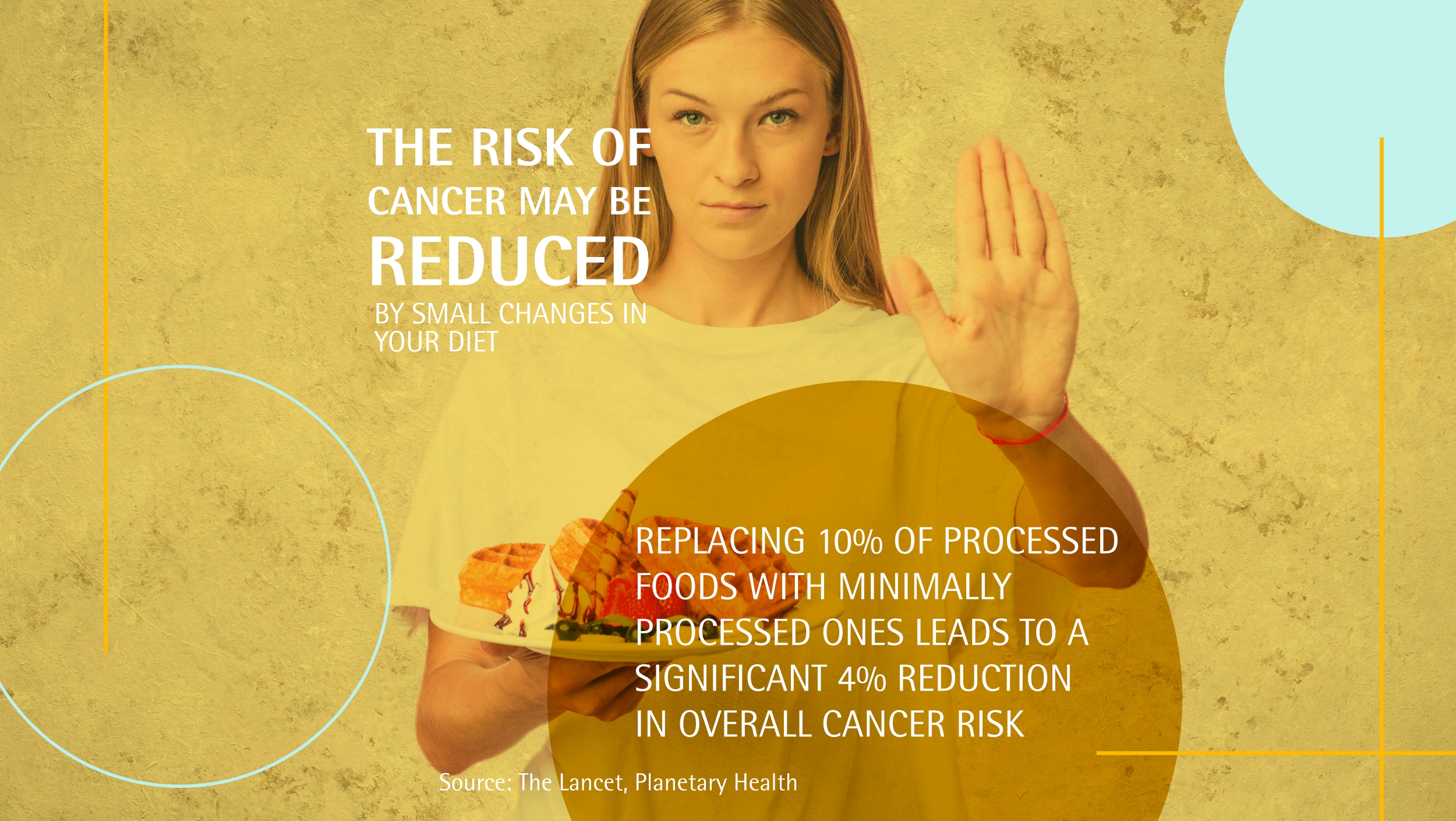
Food processing & cancer risk in Europe
26 July 2023
The consumption of processed and ultra processed foods has been linked to an increased risk of various cancers. However, a recent analysis suggests that by making a simple dietary change and substituting a small portion of these processed foods with minimally processed options, the risk of cancer may be reduced.
To conduct this analysis, researchers used data from over 450,000 participants in the European Prospective Investigation into Cancer and Nutrition (EPIC) study. They classified food items based on their level of processing using the NOVA classification system, which categorizes foods as minimally processed (NOVA 1), processed culinary ingredients (NOVA 2), processed foods (NOVA 3), and ultra processed foods (NOVA 4).
The findings revealed that replacing just 10% of processed foods with minimally processed alternatives led to a significant 4% reduction in overall cancer risk, as well as a significant reduction for specific cancer type such as esophageal squamous cell carcinoma by 43% and hepatocellular carcinoma by 23%.
Making this swap with ultra-processed foods also appeared to lower cancer risk, but, surprisingly, to a lesser degree – 1% reduction for overall cancer risk, 27% for hepatocellular carcinoma, and 20% for esophageal squamous cell carcinoma.
The study suggests that replacing processed and ultra processed foods with minimally processed alternatives could be beneficial in reducing the risk of various cancer types. Previous epidemiological evidence has already indicated a possible connection between ultra processed food consumption and cancer outcomes, with some studies linking it to increased risks of ovarian cancer and higher cancer-related mortality.
However, further research is needed to better understand the relationship between processed foods and cancer. Nonetheless, this dietary substitution analysis provides valuable insights into the potential association between the level of food processing and cancer risk, offering evidence for the importance of healthier food choices in cancer prevention.
What are unprocessed, processed and ultra-processed foods?
Food can be categorized into different levels of processing, ranging from unprocessed or minimally processed to ultra-processed. Unprocessed foods include natural edible parts of plants and animals, while minimally processed foods have undergone slight alterations for preservation without significant changes to their nutritional content, such as refrigeration or pasteurization.
Examples of minimally processed foods include freshly cut fruits and vegetables, pasteurized milk, and vacuum-sealed nuts.
Processed foods are those with added salt, sugar, or fats, often made from a few ingredients and ready-to-eat. An example of processed food would be canned fish like sardines, canned vegetables and legumes and some types of cheese.
Lastly, ultra-processed foods go beyond basic additives, containing artificial colors, flavors, and preservatives, and often lack fiber and nutrients. Examples of ultra-processed foods are sugary drinks, cookies, chips, some breakfast cereals, and processed meats. Striving for a diet favoring minimally processed rather than processed and ultra-processed foods promotes better health and nutrition.







